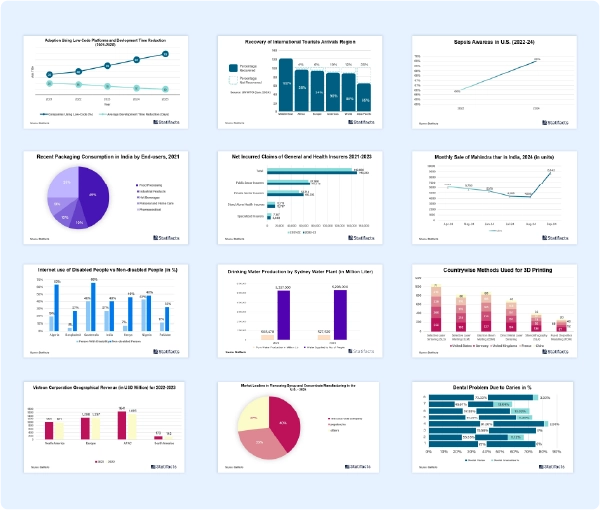

Our customers work more efficiently and benefit from
The global over the counter (OTC) drugs market size was calculated at USD 129.82 billion in 2024 and is predicted to attain around USD 250.64 billion by 2034, expanding at a CAGR of 6.8% from 2025 to 2034.
| Industry Worth | Details |
| Market Size in 2025 | USD 138.65 Billion |
| Market Size by 2034 | USD 250.64 Billion |
| Market Growth Rate from 2025 to 2034 | CAGR of 6.8% |
The over the counter (OTC) drugs market deals with the production and distribution of items that are common-purpose medications that don’t need prescriptions. In the pharmaceutical occupation, large interest can be anticipated if a drug can be thrived and brought to business successfully, but a long time is required to redeem the investment. The progression of medical technologies, like in the zone of gene therapy and regenerative medicine, is contributing to a rise in expenses and time required for the research and development of newly discovered drugs.
North America is anticipated to dominate in the over the counter (OTC) drugs market. This is because of the upsurge of customized healthcare platforms, and digital evidence checkers are delegating users to create well-informed self-medication options, assisting the market expansion. Moreover, the growing need for natural and organic OTC commodities is boosting creativity in herbal and clean-label compositions, driving the market need. Excluding this, the increasing surge in outdoor and travel activities is fueling the sales of pain relief, OTC allergy, and digestive health items, thus directing the expansion in the over the counter (OTC) drugs market.
Asia Pacific is expected to be the fastest-growing market, displaying the highest market share because of the switch in user attitude regarding self-medication, an increase in the older population, and the accessibility of OTC medicines.
The increasing focus on personal health and wellness has contributed to a rise in self-care practices. Users are now becoming more proactive in supervising minor health matters, proceeding with the growing need for OTC medications. This shift is mainly visible in segments such as vitamins, preventive care commodities, and dietary supplements. Regulatory bodies around the globe are growing with ease for the change of drugs arising out of prescription to OTC status.
This drift not only widens the over the counter (OTC) drugs market but also provokes pharmaceutical firms to invest in R&D for newly discovered OTC commodities. Technology has transformed the OTC market, starting with online pharmacy to mobile health applications. Digital platforms offer consumers easy access to data about OTC items, permitting informed decision-making. In addition to this, e-commerce has made buying OTC medications more appropriate, thus boosting market expansion.
The accessibility of generic OTC items brings downward pressure on expenses. Pharmaceutical firms must balance the demand for popularity with the expenses linked with research, marketing, and development. Exploring the complex regulatory outlook is a remarkable challenge for pharmaceutical firms. Establishing compliance with diversified regulations over different regions needs considerable investment in quality assurance and regulatory affairs.
AI is building remarkable strides in self-medication and the over the counter (OTC) drugs market. Employing the significance of AI it can improve the accessibility and effectiveness of OTC drugs, authorizing people to take charge of the individual’s health. It not only has the potency to change the world of self-medication methods but can also assist in determining the procedures and errors in its usage by users. Its applications can be used to customize its usage thus decreasing adverse impacts with expert judgement. Furthermore, incorporating AI with other developing technologies, like the Internet of Things (IoT) apparatus or telemedicine tenets, can improve the effectiveness and affordability of self-medication. Therefore, acknowledging the patterns, regulations, trends, and implementations of OTC drug usage is vital for both users and healthcare providers.
Innovation is essential to be competitive in the over the counter (OTC) drugs market. Pharmaceutical firms can grasp developments in drug delivery methods, like transdermal patches and fast-dissolving tablets, to improve commodity efficacy and user convenience. Partnerships between pharmaceutical firms, technology companies, and healthcare professionals can contribute to the advancement of creative OTC solutions. Collaborations with digital health programs can improve consumer engagement and product visibility. The growth of the OTC market presents remarkable expansion opportunities for pharmaceutical firms. By determining and focusing on unmet demands, firms can thrive on new OTC commodities or construct existing ones to keep a hold on market share.
Published by Kesiya Chacko , March 2025
For any questions about this dataset or to discuss customization options, please write to us at sales@statifacts.com
| Stats ID: | 8116 |
| Format: | Databook |
| Published: | March 2025 |
| Delivery: | Immediate |
| Price | US$ 1550 |




| Stats ID: | 8116 |
| Format: | Databook |
| Published: | March 2025 |
| Delivery: | Immediate |
| Price | US$ 1550 |

You will receive an email from our Business Development Manager. Please be sure to check your SPAM/JUNK folder too.

Unlock unlimited access to all exclusive market research reports, empowering your business.
Get industry insights at the most affordable plan
Stay ahead of the competition with comprehensive, actionable intelligence at your fingertips!
Learn More Download
Download
